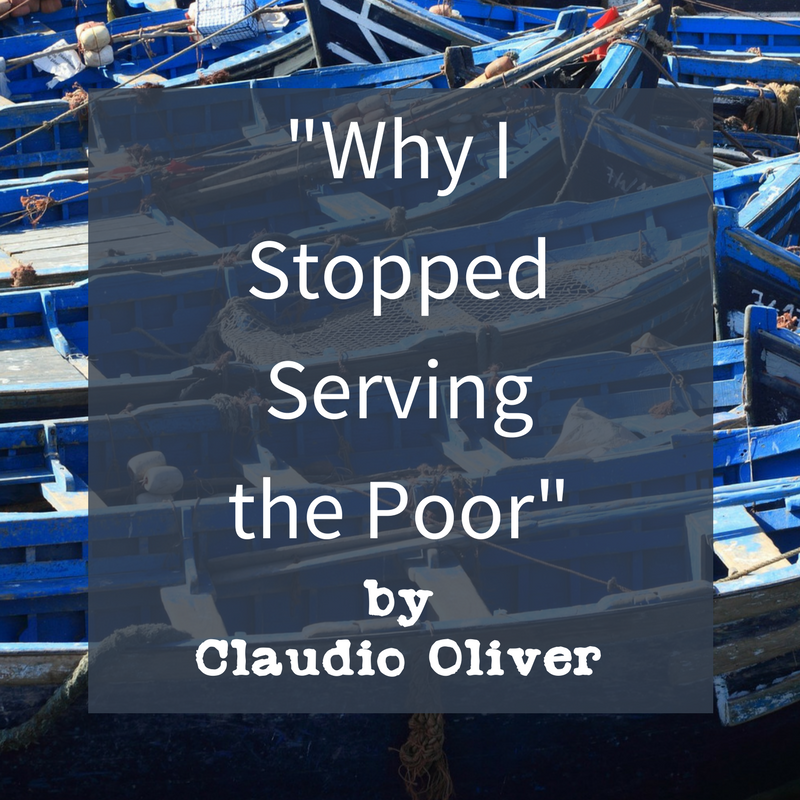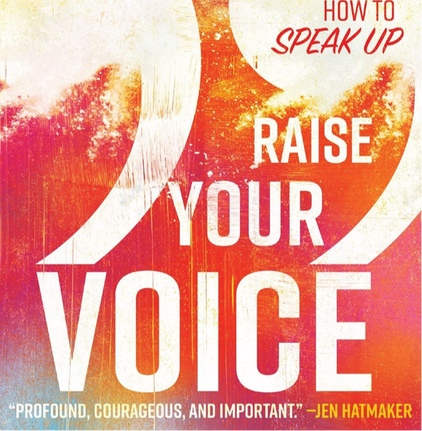 The following is an excerpt, taken with permission, from Raise Your Voice by Kathy Khang. Preorder your copy today! I believe that Christians desire and can handle more complexity. Race and reconciliation can no longer be framed solely as a justice issue but rather as core to the gospel, theologically grounded in the imago Dei (the image of God). As Christians, if we truly believe we are all created in God’s image, and that God the Creator had a hand in developing, creating, and shaping not just our embodied souls but also the places and spaces we steward and have dominion over, then reconciliation with one another is not merely an option—it’s part of God’s mandate. It requires us to speak up and speak out. In order to do so, we need to address personal development, which happens within the context of community. In some communities, certain voices are erased and suppressed while others are amplified and elevated. The concept of “voice” isn’t only what is said or written but also includes how identity is expressed in words and deed. Voice is not limited to what comes out of my mouth but out of my being. “The Latin word vox, meaning ‘voice,’ and the related word vocare, meaning ‘to call,’ give us the root voc or vok. Words from the Latin vox or vocare have something to do with the voice or with calling. Anything vocal is produced by the voice. A vocation is the work that someone is called to do as a job. To evoke is to call forth. To invoke is to call on for aid or protection. To provoke is to call forth another’s anger. The word voice also has vox as its root.” (Word Root of Vocation, Merriam-Webster Dictionary) The challenge to raise your voice is about doing the good work of the good news. It’s about calling forth others: an invocation for all and a provocation to some. Our lives should affect the world around us if we are bearers of God’s image as well as an embodiment of good news. Living as a Korean American Christian woman, there is something critical about speaking from a place of wholeness and uniqueness that makes my voice part of a community but also uniquely mine. It fills in the blanks left in others’ stories. When more of us from different intersections and margins raise our voices, we live a fuller picture of the good news.
0 Comments
 Hello folks. Last summer, I started a twitter chat about missions called #JustMissions. After writing my book A Smoldering Wick, I began connecting with like-minded people in the world of missions. But they were few and far between. To be very honest, it’s been a hard book to sell. Most people who ‘do’ missions don’t like to be told they are doing things wrong. Nonetheless, I still feel a deep desire to continue the conversation on mission practices with a more informed approach that lends to actually listening to the Majority World church. It is something I am passionate about, and I don’t think that passion will ever go away. The first chat was done with Kent Annan and Bryan Entzminger, and you can find it here. Please check out Kent’s work which includes his book Slow Kingdom Coming and his new book on refugees that will be released soon. Also listen in to Bryan’s podcast, Engaging Missions, where he interviews missionaries from around the globe and works hard to highlight their work in the field and connect them to listeners. The last chat was with Peter Rowan of OMF United Kingdom and we discussed colonialism and paternalism. It was a beautiful moment for me, talking to a missions agency about a topic many agencies do all they can to avoid. I’m so grateful for Peter’s outlook and the way in which he is working hard to bring voices from the margins into the spotlight. In-between the first and the last chats, there were amazing discussions with Faitth Brooks, Honest Missionary, Mekdes Haddis, Ryan Kuja (PLEASE PLEASE check out his new book From the Inside Out which discusses many of the topics we covered in our monthly chats), Jean Johnson (check out her book We Are Not the Hero and note that she has a study guide now), Nathalia Barros Lewis, Greg Millsaps, CJ Quartlbaum, and Bryan Benz from the International Wholistic Missions Conference (in 2019 it’ll be in Kansas City and I hope you’ll come!). I never got around to it, but I deeply wanted to have Beth Watkins as a guest on the chat. Please check out her Engaging Missions podcast, and her website. Also grab a copy of her free e-book For the Moments I Feel Faint. As much as I have enjoyed this monthly chat, it has taken a certain amount of time and preparation. As many of you may already know, I am a foster mom. The last several months fostering has brought a whole new realm of experiences for this white American [struggling] evangelical. I have since decided to write a book on these experiences. In order to do so, and maintain my life as a mom, employee, and involved member of my church, I need to make space. If any of you feel so inclined to pick up the JustMissions chat and run with it, I’d be happy to see that happen. It has taken a concerted effort to not just get cynical about missions. I must admit sometimes I fall into that. But I believe in hope, not necessarily hope in ‘missions’ per say, but hope that Christ moves us beyond cynicism and provokes us to work with Him toward shalom. That is where my hope is. I have hope that more missions agencies will see the need for shalom rather than colonialism, and that more missionaries will see that without intentionality, their work can be the work of colonialism. Missions has brought me to where I am today: fighting for the rights of undocumented parents to be with their undocumented children. For that, I am and always will be grateful. I believe as more and more of us who are interested in missions, those of us who are or were or one day will be missionaries can usher in the alternative consciousness of missions, the world can actually be a better place: not because we bring Jesus wherever we go, but because Jesus is brought deeper and deeper into the crevices and silos of our profound hearts, bodies, and souls, as we connect deeper and deeper to our global neighbors. Goodbye #JustMissions. But that doesn't mean goodbye #JustMissions participants. Please keep conversing with me, stay in contact. Keep pushing me to be more enlightened in how I look at missions. Gena 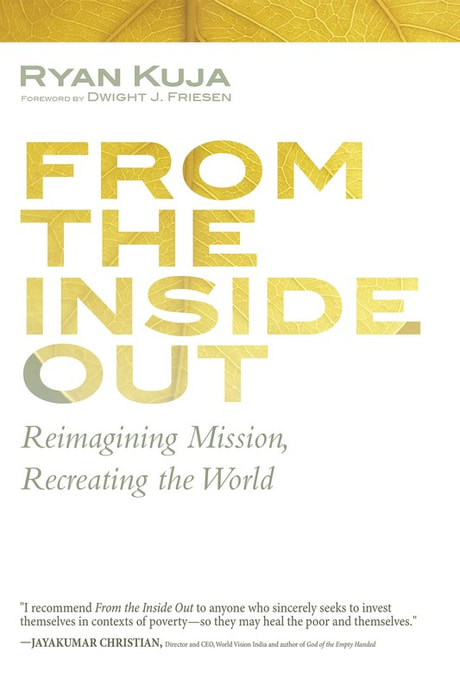 Book Excerpt: Chapter 8--From the Inside Out In 1492, Christopher Columbus stumbled upon the Bahamas while searching for a sea route from Europe to Asia. The indigenous Arawak people who had inhabited the Caribbean for centuries, “emerged from their villages onto the island's beaches and swam out to get a closer look at the strange big boat. When Columbus and his sailors came ashore, carrying swords, speaking oddly, the Arawaks ran to greet them, brought them food, water, gifts.”[1] They presented parrots, balls of cotton, spears and other items. According to Columbus himself, “they were well-built, with good bodies and handsome features . . . They do not bear arms, and do not know them, for I showed them a sword, they took it by the edge and cut themselves out of ignorance. They have no iron. Their spears are made of cane . . . They would make fine servants . . . With fifty men we could subjugate them all and make them do whatever we want.”[2] Columbus and his men wasted no time in getting to their task of exploring for gold and spices: “On the first Island which I found, I took some of the natives by force in order that they might learn and might give me information of whatever there is in these parts.”[3] From the outset the colonizers used violence to control and subjugate the Arawaks, who “faced Spaniards who had armor, muskets, swords, horses. When the Spaniards took prisoners they hanged them or burned them to death. Among the Arawaks, mass suicides began, with cassava poison. Infants were killed to save them from the Spaniards. In two years, through murder, mutilation, or suicide, half of the 250,000 Indians on Haiti were dead.”[4] A Dominican friar who participated in the original conquest of the West Indies, Bartolome de las Casas, eventually began speaking out against the subjugation by the Spanish. He became a potent voice for social reform and outspoken advocate for indigenous rights. Las Casas wrote, “our work was to exasperate, ravage, kill, mangle and destroy; small wonder, then, if they tried to kill one of us now and then . . . The admiral, it is true, was blind as those who came after him, and he was so anxious to please the King that he committed irreparable crimes against the Indians.”[5] The Spanish, continues Las Casas, "grew more conceited every day" and rather than walking, "rode the backs of Indians if they were in a hurry. . . they also had Indians carry large leaves to shade them from the sun and others to fan them with goose wings."[6] The newly arrived colonists, Las Casas goes on, "thought nothing of knifing Indians by tens and twenties and of cutting slices off them to test the sharpness of their blades."[7] He narrates an account of when "two of these so-called Christians met two Indian boys one day, each carrying a parrot; they took the parrots and for fun beheaded the boys."[8] Imperial Jesus had been brought by Columbus and his compatriots to the so-called New World. In the midst of this brutality, Columbus wrote in a report back to the Spanish crown, “"Thus the eternal God, our Lord, gives victory to those who follow His way over apparent impossibilities."[9] The Spanish visitors had instigated a reign of terror in the name of Jesus Christ, the Messiah who had ushered in a reign of justice, freedom, and flourishing for all. The cross and sword went hand in hand, literally and metaphorically, each escorted by the other in fulfilling the colonial task—both wielded in the name of the One who had lived and taught the way of forgiveness, nonviolence, and peace. The Christian symbol that signified the suffering Messiah, the Prince of Peace, had been co-opted by European imperialists and reverted back into a symbol of power, dominance, and colonial rule. It had once again become a Roman cross, returning to its past as a symbol of humiliation and shame. The vision of peace and prosperity through the sword entered a contemporary manifestation in the Americas. The way of empire was renewed, allegiance pledged to the crown of Spain rather than the kingdom of God. Western colonialism robbed the cross of Christ, the non-violent Prince of Peace,[10] and returned it to its original imperial means of controlling the subjects of the foreign throne and bringing about expansion of its territory. The violence of the sword had muted out the message of the reconciling love of the cross. The Way modeled and taught by Jesus was replaced by the way of the imperial ego. The potential expansion of God’s kingdom and the missio Dei taking root through expressions of cross-cultural shalom was aborted. The crack in the foundation of global mission began to appear. In 1493, a year after Columbus’ first voyage to the New World, Pope Alexander XI wrote a document, known as a Papal Bull, declaring that lands not inhabited by Christians were free to be “discovered” by Christian rulers on behalf of their European monarchs. He declared “the Catholic faith and the Christian religion be exalted and be everywhere increased and spread, that the health of souls be cared for and that barbarous nations be overthrown and brought to the faith itself.”[11] This document was one of the centerpieces of the “Doctrine of Discovery” which authorized European claims in the Americas. Indigenous brown and black skinned people across the world—anyone who was not Western, white, and Christian—were theologized into uncivilized, uncultured, and regressive nonpersons and labeled enemies of Christ. Violence toward indigenous persons was codified by papal decree, ethnocentrism sanctified through holy writ. The first wave of European colonization, supported by the church’s doctrine, led to the eventual conquest of the whole of the Americas. The living out of this theology was practical, egregiously so. The church had institutionalized racism and ethnocentrism through theologizing colonialism into doctrine. Imperial Jesus continued to grow up. The fissure in the foundation of mission widened. Ryan Kuja Bio A global citizen with a background in international mission, relief, and development, Ryan Kuja has lived in fifteen cities and rural villages on five continents. He holds an M.A. in Theology and Culture from The Seattle School of Theology & Psychology as well a Diploma in Humanitarian Assistance from Liverpool School of Tropical Medicine. A spiritual director and writer, his first book, From the Inside Out: Reimagining Mission, Recreating the World, released in June 2018. Ryan is currently serving as the Field Director of Word Made Flesh in Medellin, Colombia, where he lives with his wife. You can find him online at ryankuja.com and on twitter as @ryankuja. [1]Zinn, A People’s History of the United States, 1. [2]Ibid., 1. [3]Ibid., 2. [4]Ibid., 4. [5] Ibid., 6. [6] Ibid., 6. [7] Ibid., 6. [8] Ibid., 6. [9] Ibid., 6. [10] Is 9:6. [11] Alexander VI, Inter Caetera. "We usually hear in the church about the quiet and gentle spirited woman and in my mind she is the type of woman who is super patient and has the gift to hold her tongue when in distress and I get the message I should strive to be like her. Then we hear about the strong willed woman and the way she’s typically described is as the one who wears the pants at home and doesn’t take no for an answer and I should distance myself from her. But this woman of valor in Proverbs 31 seems like she’s neither."
… For more read the rest of Mekdes' article here. Check out her website here. 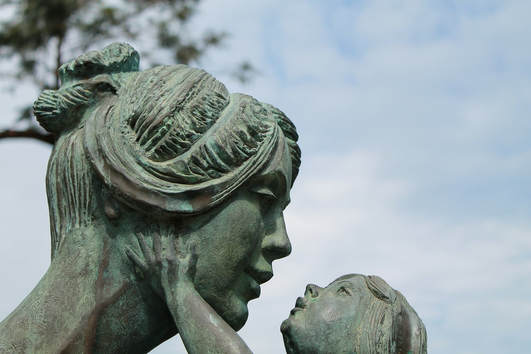 Dear Mama, I ache because I know pieces of your story, and I ache because your daughter was taken from you. I am sorry for all you have been through, and that all of that was not the worst of it. I am sorry that you are now separated from your child, and you don’t know when you will see her again. I am sorry that my government thought it would be the right thing to do to separate your family, and I am sorry that my people, my country voted in these leaders who made these horrific decisions. There is no way we can say enough sorrys; but we must own that a portion of this responsibility is on us. When I think about all that you have been through and all the reasons you tried to come live in the United States, I begin to breathe heavily--the burden feels too much to bear even for me, as a bystander of the story. You are one of the strongest women I know, and you are a warrior. It is so incredibly sad that in this world we focus so much on celebrity gossip and Twitter wars, but I need you to know that there are some of us, a group of us who are focusing on you. There is a group of us, a group I belong to, of Christian women who care. We don’t know exactly what to do, but we are trying to do something. But it’s not just my group who cares, not just my label of religion. There are others who do not identify as Christians and they care too, and I am grateful—GRATEFUL—for them. And I know that God cares. He feels, he weeps, he knows, and he loves you deeply. I know that is much easier for me to say, as I sit in my home writing this with all of my unseparated children here with me behind doors, not behind bars. I know it is much easier for me to say, coming from a life that has suffered so little in comparison to what you have been through. You are right. It is easier for me to say. But I still believe it, and I hope you believe it too. Christ who came to earth without powers, without pedestals, without riches came to make crooked paths straight, to bring justice to a world full of injustice. Oh how I wish he could just ride in on a white stallion and magically, powerfully make all the bad go away and return your children to you at this very second! Yes I do wish that. Maybe you wish it too. Maybe you think that if He doesn’t, He isn’t God. I am tempted to think that too. Please know that he is right there with you. He is the tears you cry and the shoulders you lean on. He is the voice of Hope that says this story is not over. And the Holy Spirit, she is the wind that carries your cries outside of those cell doors and brings them to our ears. She is the breath that comes out of your mouth every moment despite your desire to never speak again; she is the one that covers you with a cloak of justice, the hope that says people reap what they sow. She is the real Lady Liberty that welcomes you onto her land, a place where no one is turned away, where the huddled masses actually do get to breathe free. No, she is not America, she is better. She is greater. So hold onto her, because she reaches out for you. Hold onto her because she brings inexplicable shalom. Hold onto her not because she will make all your nightmares go away, but because she will always lay down next to you and stroke your hair as you attempt to sleep through the nightmares. She takes some of those nightmares and burdens off you and lays them on me. Hold onto her because she is real, and she is love, and your story is not yet over. No this is not the end. Hold on, and when your hands get tired of holding, I will do my best to lift them up. Dear Mama. You are strong. You are stronger than American policies. You are stronger than American politics. You are who we want to be. Hold on, and teach us how to hold on too. Dear Mama, you are loved. Your burden is our burden. We will fight together. 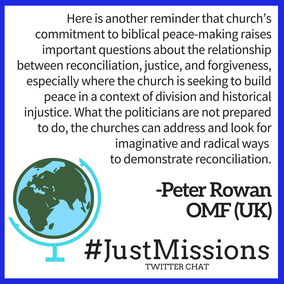 What led you to the role you currently serve with OMF? I was always interested in the China Inland Mission and particularly in the work of its founder, James Hudson Taylor. The CIM later became the Overseas Missionary Fellowship, and then OMF. Three people from my home city joined OMF in the 1970s and 80s and I attended the OMF prayer meeting that met each month to pray for them. After some years of work and studies, my wife, Christine, joined OMF and ended up in Malaysia where I taught missiology and other subjects in a local seminary for about 10 years. We were asked to consider leading OMF’s UK Centre and sensing that God was leading us to something different, we took up this role in 2010. OMF (UK) has about 200 mission partners serving in various ministries among East Asia’s peoples and sent out from UK churches. Can you tell us a bit about OMF. OMF traces its history back to Hudson Taylor and the founding of the China Inland Mission in 1865. Originally we were focused only on China, but when communist rule took over it was impossible for missionary work to continue there, and this lead the organization to rethink it’s purpose and rediscover what it was that God had called it to do. The CIM became the Overseas Missionary Fellowship and along with a focus on Chinese peoples, ministries developed across East Asia. Today we’re a global fellowship of Christians with a heart for East Asia. We endeavor to serve the church and share the gospel so that it is seen and heard in all we do and say. Our work is as diverse as the communities and cities we live in. From planting churches to running businesses. From practicing medicine to training Sunday school teachers. In every area of life, we aim to present the good news of Jesus – in a way that’s right for the culture, and for the long term. Paternalism and Colonialism in Mission. “There is an unfinished (perhaps scarcely begun) agenda here for churches in the rich Western world, involving the acknowledgement of previously unrecognized compromises, a genuine penitence at the loss of a critical and prophetic perspective on the culture of modernity, and a serious quest for the recovery of the liberating message of Christ and for models of the church and its calling appropriate for witness in the age of globalization.” From David Smith, Liberating the Gospel. Why do we need to talk about paternalism and colonialism in missions? Simply because it hasn’t been talked about enough within those organisations and church networks that engage in cross-cultural mission. The mission movement has been very much about the powerful going to the powerless, from the West to the rest. This is all changing in light of the demographic changes in the world church, but the attitudes of paternalism remain among many of those who are part of the evangelical western mission movement. I was struck by something Amos Yong said last year in an interview with the publishers Wipf and Stock: “The gospel calls us and sends us out… The Colonial enterprise put us in charge of God’s sending rather than allowing us to be carried by the sending God. The latter involves our really attending to the voice of the ‘other’, attending to the ‘other’ as ‘other’, allowing ourselves as people of mission to be invited into the space of the ‘other’.” Do you believe it is crucial to the spread of the gospel to be aware of the intertwining (whether historically or currently) of missions and colonialism? Yes, I do. I think this is part of what David Smith addresses in his book – the need to liberate the gospel from the various wrappers that we have allowed the gospel to be packaged in and then shipped around the world. Paternalism can often come from us thinking that our western package of theology is the correct one, and that our understanding of the gospel and how it should be communicated and applied is the correct way. And this can mean we go to other cultures not really attending to the ‘other’, as Amos Yong says. We end up thinking of ourselves as the benefactor, the one in control, and who is giving ‘these people’ the theology they need. The idea of us “being invited into the space of the ‘other’”, about us being guests, is absent. We tend to see ourselves as the hosts – us being in charge! When we become aware of these attitudes we become open to transformation. I love the account in Acts 10 & 11 of Cornelius and Peter because it tells the story of two conversions. Cornelius comes to a living faith in the Lord Jesus, and Peter realizes that God doesn’t show favouritism, his theological paradigm of segregation is blown apart. And the combined result of these conversions takes the church to a new place. In the following chapters we see how the center of gravity in the Christian movement moves geographically - from Jerusalem to Antioch; and moves missiologically - so the Antioch church becomes multiethnic and multicultural. We have so much to learn from the majority world. Becoming aware of the intertwining of colonialism and mission opens up avenues to learn and be transformed and for the good news to be seen as well heard from our lives. Any practical steps we can take in the Western world of missions in a) acknowledging the previously unrecognized compromises and 2) offering genuine penitence for the horrible effects this has had on the non-Western world? I was talking with a retired-but-still-active professor of history last night. He has spent most of his academic life researching and writing on colonial and post-colonial themes, and he supervises a good number of PhD students - Christians researching various aspects of these themes in relation to mission. He said to me that although he sees individual Christians, often missionaries, researching and writing theses on colonialism, he thinks the mission organisations and the activists to do mission, haven’t really engaged with the research and with where the academic conversation has got to. I think he’s correct. That’s why some of us in the UK are trying promote initiatives that bring together academics and practioners in the world of mission. I also believe we need to open up the conversation with majority world Christian leaders and missionaries. Too many of us spend our time in our western mission movement bubbles – discussing our mission strategies in rooms filled with most white, middle-aged men (and I’m one of them!). We need to extend the diversity, bringing other voices into the room and inviting honest perspectives. I was attended a wonderful conference a few months ago organized by a UK based organization called Missio Africanus. The multi-ethnic contributors shared a diverse range of case-studies. And for the first time in a long time, the topic of colonialism was raised. It is interesting to me that this topic is never raised in a predominantly white, evangelical missionary gatherings. But here’s a story which I think illustrates the attitudes and actions we need, in order to bring reconciliation in many contexts. This one happens to be from Hong Kong… At midnight on June 30-July 1, 1997 and after 156 years of British rule, the crown colony of Hong Kong was returned to Chinese sovereignty. The formal ceremony was full of pomp and pageantry, with dignitaries from all over the world in attendance to witness the hand-over ceremony. In complete contrast to what was happening on the political stage, the pastors of six evangelical churches invited their congregations to an English / Chinese service. Altogether about a thousand Christians, Chinese and expatriate, gathered in St. Andrew’s Church, Kowloon, to participate in a foot-washing ceremony of reconciliation. Rev. John Aldis, senior pastor of St. Andrew’s Church – the largest English-speaking congregation in Hong Kong – wept as he read a statement of repentance to Chinese pastor Jonathan Chan. Speaking as a representative of Britain to the Hong Kong Chinese people, Aldis asked forgiveness for “our injustice, our pride and our isolation.” He confessed, “The foundations of this colony were unjust, seized by war and violence… and we gave back your land and your people without asking you. As a race we have a sense of racial superiority which has been patronising and hurtful to you. We often lived in ghettos of exclusiveness and hid ourselves from your culture. We have not listened to you.” Aldis wept as he said, “Forgive us as a nation and a church. Release us from this bondage of guilt.” Mr. Jonathan Chan, in his capacity as the Chairman of the South Kowloon Pastors Prayer Fellowship, made all Hong Kong Chinese in the church stand and say, “We forgive you.” Chan confessed the sin of racial pride on the Chinese side, and Rev. Aldis asked the English-speaking members to return the forgiveness. Then he first washed the feet of the Rev. Sam Lai, senior pastor of the Shepherd Community Church, and Lai in turn washed his feet “as a symbol of thanksgiving for what your nation has done for the past 150 years to bring blessing to Hong Kong, especially full freedom of religion.” The issues of repenting of past sins and atrocities became a political issue in the run-up to the handover, with Chinese officials pressuring British diplomats and ministers to apologise unequivocally for the Opium Wars. However, Robin Cook, British Foreign Secretary at the time said, “If I had to apologise for the actions of colonial Britain over a hundred years ago I would have no time to do anything else.” Here is another reminder that church’s commitment to biblical peace-making raises important questions about the relationship between reconciliation, justice, and forgiveness, especially where the church is seeking to build peace in a context of division and historical injustice. What the politicians are not prepared to do, the churches can address and look for imaginative and radical ways to demonstrate reconciliation. In the highly-charged atmospheres of politics, community relations and inter-faith tensions, followers of Jesus are called to take courageous steps in so becoming the gospel that our actions send ripples across the wider socio-political landscape, resulting in missional connections and spiritual breakthroughs and social reconciliation. |
Gena's
|

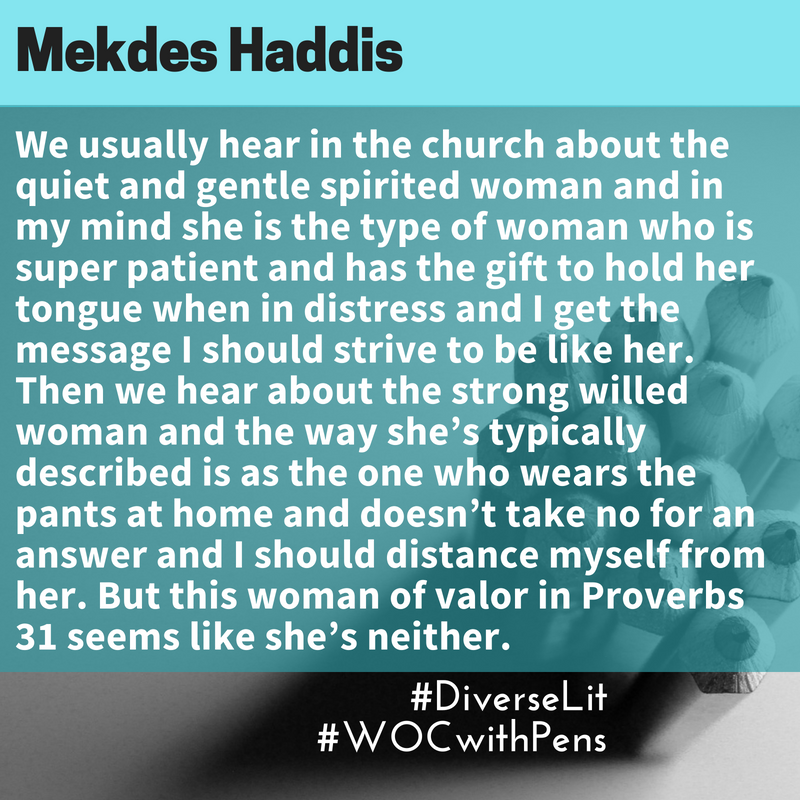
 RSS Feed
RSS Feed

